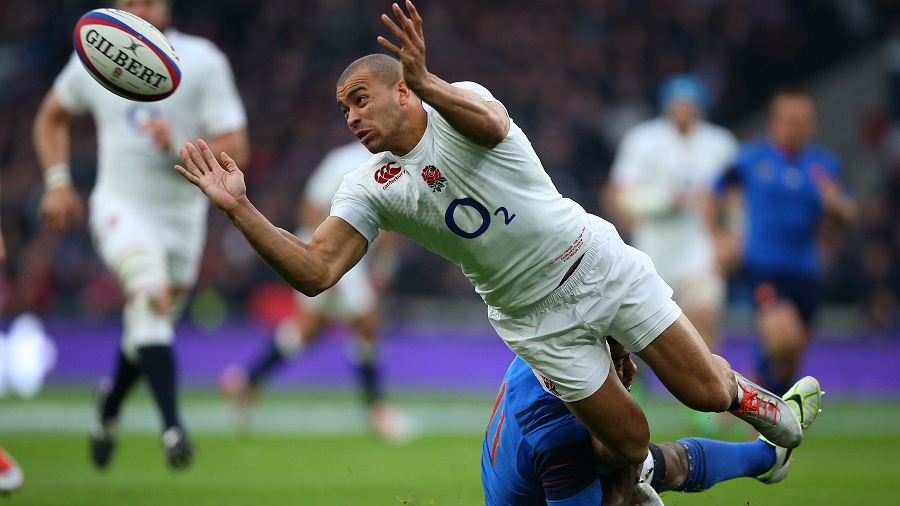|
John Mitchell Column
Attacking revolution won't be repeated at World Cup
John Mitchell
March 26, 2015

The gainful abandon of Six Nations' play on Saturday was a pleasant change - but it will prove fleeting © Getty Images
Enlarge
The first four rounds of the Six Nations were pretty average to be honest, but that changed on the final day when a record 221 points and 27 tries were scored. Wales, Ireland, England and France showed that they can play attacking rugby to match the fare produced in the southern hemisphere. So what sparked this attacking revolution? The first and most obvious reason is that Wales, Ireland and England went into their games with an attacking mindset as they knew they had to win them by a big margin. England's approach also seemed to rub off on France, who achieved their highest-ever points tally at Twickenham. Those teams clearly boast the ability to play like that every week, and did so on Saturday because they had a target to chase. The final day was billed as 'Super Saturday' but it turned out to be 'Sensational Saturday'.
Favourable conditions also played a significant part in the rugby we witnessed. The sun was shining at Murrayfield which helped Ireland attain the big win they needed. I doubt they would have achieved that if it had been pouring with rain, as is often the case in Edinburgh. We must also take into account that Wales, Ireland and England were also up against relatively unmotivated opponents who had far less reason to win. That won't be the case at the World Cup, where if you lose a knockout game, you go home. In my view, Italy and Scotland were very disappointing, while only France's dislike of the English spurred them on. Can we expect the northern hemisphere teams to play attacking rugby like we saw on Saturday at the World Cup? My answer is no. At the World Cup, and during the knockout stages in particular, you just need to win - there is no points difference to worry about or points targets to chase. There is also far more on the line and the pressure is magnified. Of all the teams on Saturday, England impressed me the most. They scored some excellent tries, with George Ford's being the best in my book. England may not have won the Six Nations title, but I believe that performance would have given their confidence a big boost. However, Ireland are worthy champions. They had been criticised for kicking the leather off the ball in their previous matches, but showed they can adopt a more expansive approach when required and can attack all areas of space. These days you can't just have one game plan. You can have a base game plan, but you need to be able to make tactical adjustments in order to manage pressure or put pressure on the opposition. Ireland did that effectively.
Meanwhile, I felt Wales improved as the tournament progressed. They became more enthusiastic and generated quicker ruck ball. Their defence is still a concern, though, and that had a negative impact on their points difference. I also believe that their attack can become predictable, at times, and while they were able to score seven second-half tries in Rome on Saturday, it must be remembered it was against a team ranked 14th in the world. I've said it before and I'll assert it once again, I don't think you can read too much into the Six Nations when it comes to looking at what could happen at the World Cup. A lot can still change before then - with players getting injured or losing form - and often you can lose a World Cup just because the luck doesn't go your way. In 2003, we lost two key players in Tana Umaga and Justin Marshall, while Jerry Collins played with broken ribs. The margin between victory and defeat at that stage of a tournament, in any sport, can be wafer thin. I was reminded of this when New Zealand beat South Africa in the ICC Cricket World Cup semi-final in Auckland on Tuesday. The match was decided by one or two balls - out of 516 - and while the Black Caps snuck home, with a bit of fortune, it could have been the Proteas who qualified for the final. It may prove the case at the Rugby World Cup later this year that the team that lifts the trophy got the bounce of the ball at a crucial moment. As such, past titles and matches won count for very little in the end. That's why I believe that Ireland should just enjoy their Six Nations success and not think about what it could mean for them in a World Cup context. © ESPN Sports Media Ltd John Mitchell's explosive book, Mitch: The Real Story, is available through Amazon (Kindle edition) and Kalahari (print and eBook). Follow him on Twitter @mfactorcoaching
| ||||||||||||||||||||||||||||||
Live Sports
Communication error please reload the page.
-
Football
-
Cricket
-
Rugby
-
- Days
- Hrs
- Mins
- Secs
F1 - Abu Dhabi GP
Abu Dhabi Grand Prix December 11-131. Max Verstappen ()
2. Valtteri Bottas (Mercedes)
3. Lewis Hamilton (Mercedes)
4. Alexander Albon ()
5. Lando Norris ()
6. Carlos Sainz Jr ()
-
ESPNOtherLive >>
Boxing - Nelson v Wilson; Simmons v Dickinson; Joshua v Gavern (Metro Radio Arena, Newcastle)
Golf - Houston Open
Snooker - China Open
Tennis - Miami Open

